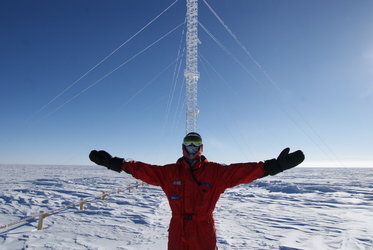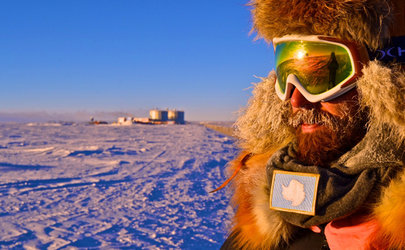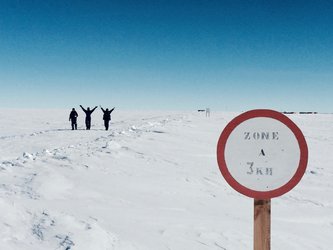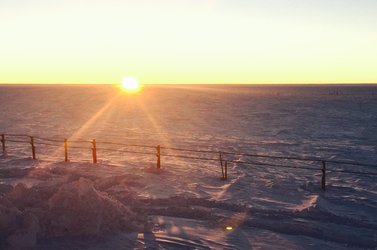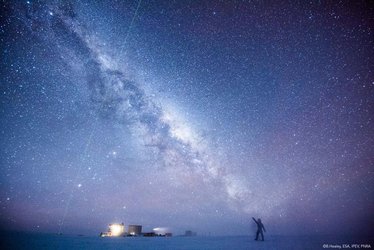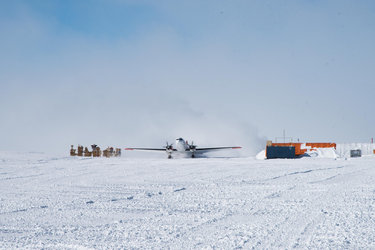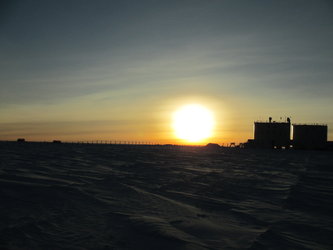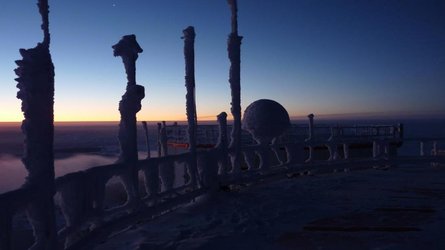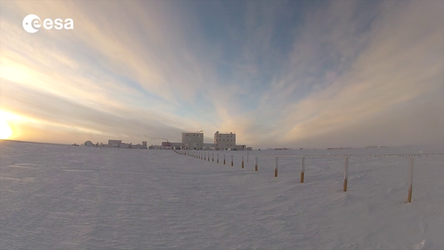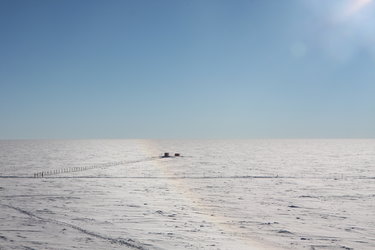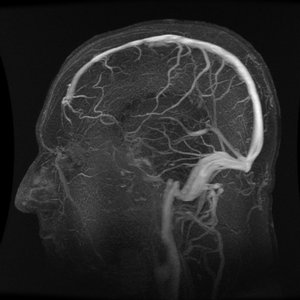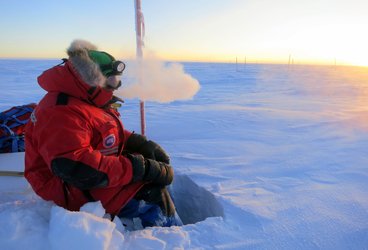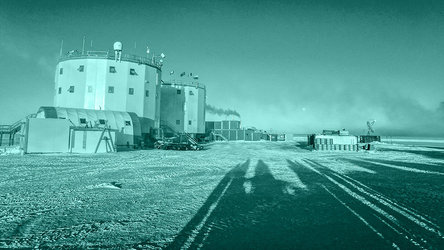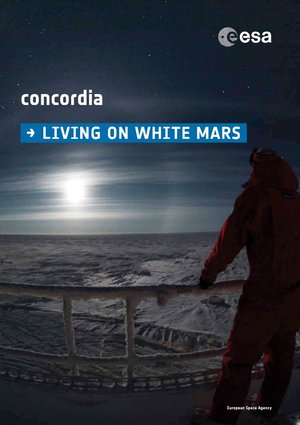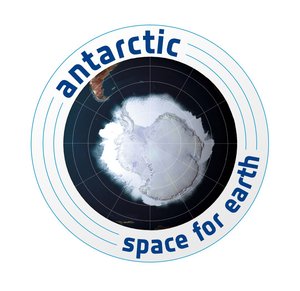This year’s science
Many experiments are repeated over multiple years to collect as much data as possible. This year sees the first collaboration with the Halley VI British research station, which will run two experiments as controls.
“I've got the greatest enthusiasm and confidence in the mission”
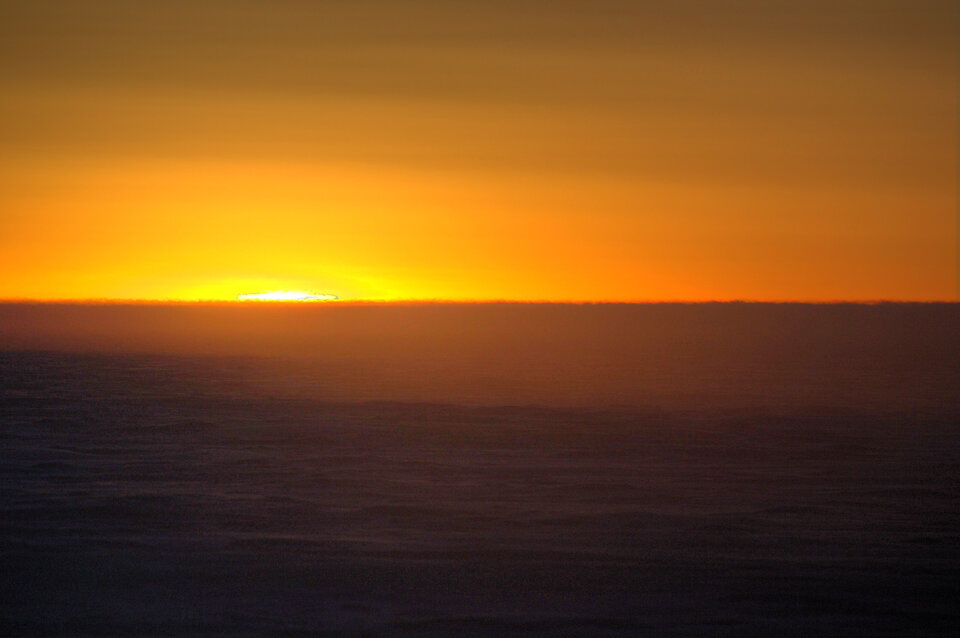
The ‘Content analysis and acoustic analysis crew talks and video diaries’ (CAPA) experiment is a continuation of previous year’s Coala experiment that aims to assess moods by interpreting video diaries.
Knowing how someone feels is important for mission controllers and experiments. However, ask someone how they feel and they will never reply objectively. Presently, the best way of judging someone’s state of mind is through lengthy questionnaires, but these are time-consuming and cumbersome. It would be better to have a computer offer objective assessments of how people are feeling.
A more efficient way to assess mood would be to look at external signs. This experiment will analyse speech patterns such as tone of voice, intonation, use of grammar and speed of speech. Crewmembers will regularly record a video diary of their life in Concordia as well as narrate a paragraph from a fairy tale. By looking at changes in the way they talk into the camera and comparing these with results from standard questionnaires, researchers hope to develop software that can analyse speech automatically. In addition to improved computer algorithms, the experiment this year will include recordings from social conversations at the dinner table and collect data from Halley VI.
Confinement and isolation on blood pressure regulation in Antarctica
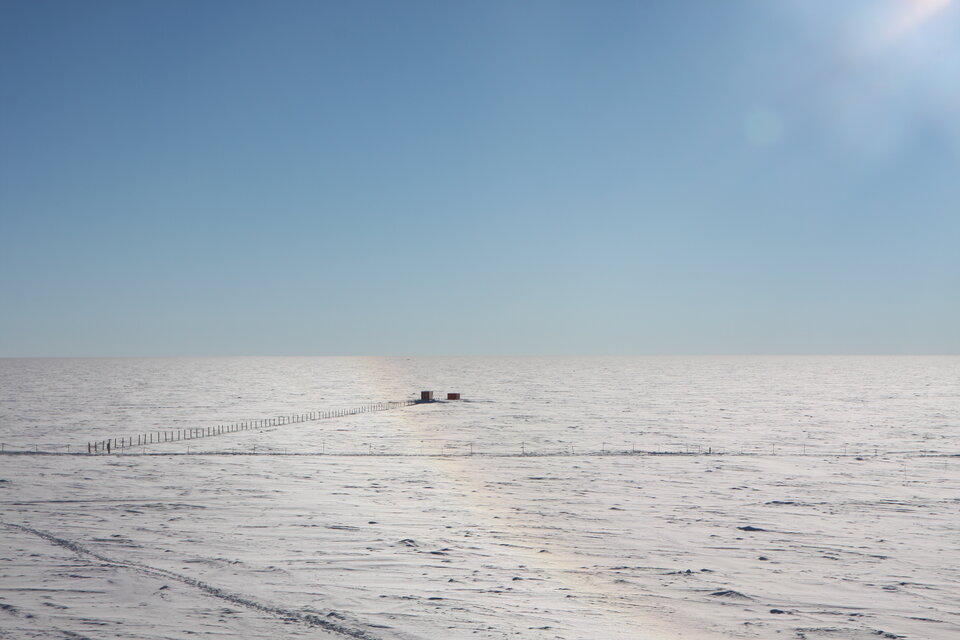
Future outposts on Mars or the Moon will likely be designed to have lower air pressure than we are accustomed to at sea level. The walls need not be as thick, there is less risk of fire and it makes exiting the lunar base simpler.
Aside from there being normal gravity at Concordia, the Antarctic base resembles living in space in terms of extreme isolation and low air pressure. This experiment will look at the subjects’ blood pressure during their stay at the base-at-the-end-of-the-world. Scientists expect that it will increase during the harsh winter months, but little is known about how these conditions influence the cardiovascular system.
To investigate, subjects at Concordia will have their blood pressure checked every morning in three 35-day sessions for the effects of Confinement and Isolation on Blood pressure regulation in Antarctica (CIBA) experiment.
In addition, they will have their blood pressure monitored continuously for 24 hours on some days. Urine samples will be stored to get a complete view of what is affecting blood pressure.
Does isolation change your brain?
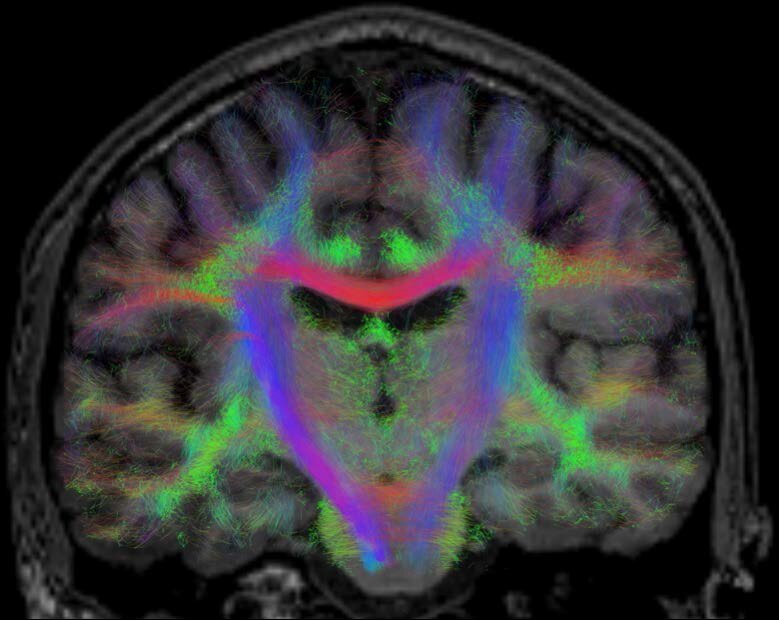
This experiment, formally called ‘Crew Cohesion Dynamics and related Neurostructural, Cognitive, and Physiologic Changes During a one-year Antarctic Winter-Over Mission’ sets out to test whether spending a year at Concordia physically changes connections in the brain. Brain scans will be performed before and after a winter in Concordia.
The experiment is part of a larger coordinated investigation into charting changes in brain and behaviour in extreme conditions. The experiment includes location sensors that will record how people interact during their stay, their heart rate, their sleep rhythms, their mood and will test cognitive skills with short computer games.
Elements of this experiment were done during the Mars500 520-day isolation study and by astronauts on the International Space Station. The experiment will give a complete view of how isolation, extreme environments and closed quarters can influence the human brain.
Seeing in the dark

At Concordia the crew spend four months without sunlight and researchers on the Eye and Sleep experiment want to know if this changes the sensitivity of their eyes and if it affects sleep.
Studies have already shown that office-workers’ eyes react less quickly to light compared to people who work outside. People who live in areas with little sunlight during the winter months are more likely to have midwinter insomnia and other sleeping problems.
Subjects will have their eyes scanned with a pupillometer on a weekly basis after sitting in 10 minutes of darkness and 10 minutes with the lights on to see how the pupil reacts to the changing light. The readings will be compared with activity recordings and light recordings from a watch worn continuously by the crew.
This experiment will offer a better understanding of people who live in low light, including astronauts, insomniacs, night-shift workers and people with eye problems. This experiment will run at Halley VI and Concordia to see if hypoxia also has an effect on the eye. Halley VI sits at sea level with normal air pressure.
Searching for extremophiles
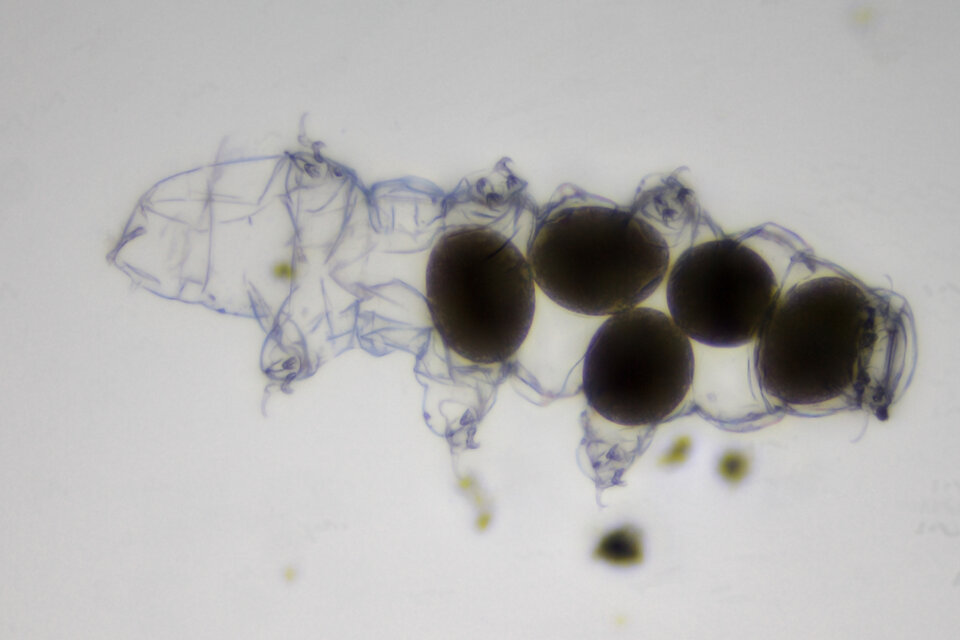
Concordia is situated on one of the most barren places on Earth. At an altitude of 3200 m with temperatures as low as –80°C and less humidity than in the Sahara, life has a hard time surviving. Keeping a research base crewed and running is a logistical feat in itself.
Could life have adapted to live in these conditions? The BacFinder experiment is set to find out by taking samples from around and near Concordia and cultivating them in the laboratory. Samples will be taken from potential habitats where life could gain a foothold in the white desert.
The BacFinder team are looking for bacteria, fungi and viral colonies that could have adapted to the cold, either having arrived at Concordia on their own or travelled inadvertently with crewmembers.
ESA has a long history of finding strange life that can survive in the most barren places. Tardigrades and lichen that ESA experiments took into space without protection have survived and continued to live on Earth. In 2012, astronauts on ESA’s underground training course found a whole new species of woodlice in a cave in Sardinia, Italy.
We can learn a lot from organisms that can survive in extreme conditions and mission designers consider using them for our purposes in future space travel.


